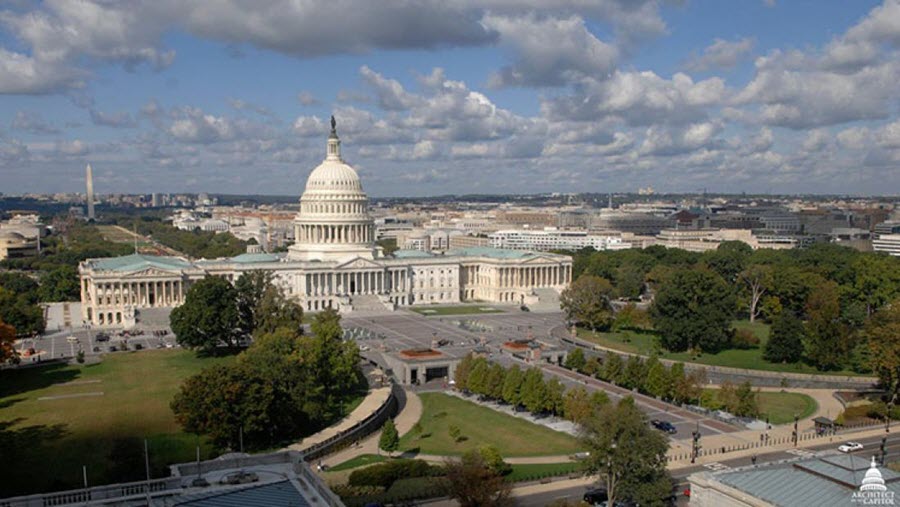Net Regs Go, but Stakeholders Battle On
The smarter way to stay on top of the multichannel video marketplace. Sign up below.
You are now subscribed
Your newsletter sign-up was successful
WASHINGTON — The issue of network neutrality remains D.C.’s biggest digital divide, and one that shows no sign of healing anytime soon.
Last week’s trigger of the Republican Federal Communications Commission’s net neutrality regulation rollback fired up the ongoing angst of activists, along with the branding battle between those forces and their computer company allies against internet service providers and fans of broadband deregulation.
Related: Net Neutrality Activists Get It in Gear
What both sides have in common is that they were each calling for help from Congress, in very different forms. But there were no signs that either legislative approach was a near-term solution to the split over how the government should regulate the net, and who should get regulated.
ISPs are willing to accept a return of some of the regulations that were recently eliminated, and under the FCC’s authority — just not under Title II — and likely with some wiggle room for pro-consumer paid prioritization. Opponents consider that last phrase an oxymoron, except for carve-outs for items such as telemedicine and connected cars.
Stirring the Branding Pot
There was also a big branding battle being waged over just what the rollback meant.
The smarter way to stay on top of the multichannel video marketplace. Sign up below.

The doom and gloom predictions of the death of the internet were branded as chicken little overreaction by ISPs, while promises by the big web providers that nothing about users’ online experience would change were branded as a strategy to lull consumers into a false sense of security before turning up the blocking and throttling heat, like web user-lobsters in an ISP pot.
Net-Neutrality Rollback Fans: Sky Isn't Falling
USTelecom even used activists’ own online protests, which were based on their assertions that speech could be blocked, to demonstrate that those swift net roads were still open.
The activist legislative push is for the Congressional Review Act nullification of the rule rollback, which its backers said was still a going concern, despite the fact that it is almost 50 votes short of even getting it placed on the House floor calendar for any vote.
On the other side, ISPs, joined by their Republican allies, continue to call for bipartisan legislation. That still sounds like a nonstarter for Democrats, though, a development that House Energy & Commerce Committee leadership was putting a pin in even as they called for support for their draft legislation.
“After repeated attempts to start good faith negotiations, it appears our Democratic colleagues are more interested in coming up with political slogans than legislative solutions,” said House Energy and Commerce Committee chair Greg Walden (R-Ore.) and Communications & Technology Subcommittee chair Marsha Blackburn (R-Tenn.).
Meanwhile, the Federal Trade Commission, which as of last week is the primary cop on the network neutrality enforcement beat, signaled it was on patrol, but that it too might need some congressional backup.
“Using our existing authority, we will work hard to ensure broadband providers keep their promises to consumers and are not engaged in anticompetitive practices,” said an FTC spokesperson. FTC chairman Joseph Simons was not available for comment. “As we monitor the marketplace, we will work with Congress to address any additional resources we might need.”
Tag Team Enforcement
One criticism of the FTC as net neutrality enforcer involves whether it has the needed technical expertise in network management and how traffic is handled. But the FTC and FCC have said they will work together and share resources in their tag-team net enforcement regime.
The FCC’s principal role will be to enforce enhanced ISP transparency requirements, which must be publicly posted.
The nation’s largest ISP, Comcast, was promoting as well as posting last week, with Comcast Cable CEO Dave Watson pointing out in a blog post that the MSO doesn’t block, throttle, prioritize for pay or discriminate in favor of its own content.
That is an enforceable commitment, but could change if Comcast shifts its business plan and informs the FCC and the public accordingly. But the FTC could still take action if it concluded the company’s business model was unfair or anticompetitive.
In addition to the legislative attempts at regulatory certainty, the U.S. Court of Appeals for the D.C. Circuit will again be weighing in, given the multiple legal challenges to the reg rollback that will be heard in that court.
Contributing editor John Eggerton has been an editor and/or writer on media regulation, legislation and policy for over four decades, including covering the FCC, FTC, Congress, the major media trade associations, and the federal courts. In addition to Multichannel News and Broadcasting + Cable, his work has appeared in Radio World, TV Technology, TV Fax, This Week in Consumer Electronics, Variety and the Encyclopedia Britannica.

